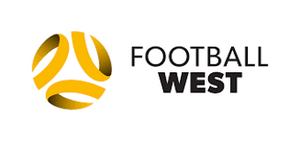UPDATE: Football West has introduced a Hot Weather Policy to ensure players and match officials are protected during the summer.
The policy is aimed at reducing the risk of heat stroke, a potentially fatal condition which may arise when a player or official continues to exercise despite suffering from heat exhaustion.
To ensure the risk is minimised, the following conditions have been introduced:
-
If the temperature at kick off is forecast to be 32C or higher for junior matches, or 36C or higher for senior matches, Football West will reschedule a competition match and withdraw approval of a friendly match.
-
If the temperature at kick off for any junior match is forecast to be 30C or higher, or 34C or higher for senior matches, a drinks break must be held in each half of the match. The timing of the drinks break is at the discretion of the match official but should occur, where possible, approximately two-thirds of the way through each half. This is due to the players being able to hydrate more appropriately prior to the start of the half, with the drinks break providing a “top-up” opportunity before half time or the end of the match.
-
In extreme circumstances, the referee, in consultation with the team officials, may permit two drinks breaks per half in matches. If this is implemented, the drinks breaks are to be held, where possible, every 15 minutes.
-
Clubs should check the temperature forecast 2-3 days prior to each training session during the hotter months, as published by BOM at http://www.bom.gov.au/wa/forecasts/map7day.shtml. If the temperature at the BOM site closest to the venue to at the time of training is forecast to be 32C or higher for juniors, or 36C or higher for seniors, clubs should consider rescheduling training to a time where the session can be completed by 11am or started after 5pm.
Clubs are also encouraged to get players to drink fluids prior to, during and after all matches and training sessions to avoid dehydration and for rehydration following strenuous activity.
Clubs should make every effort to provide adequate resources for participants including the provision of water, ice, fans, cooling vests and should monitor the players to ensure that they are fit enough to participate or continue to participate.
Where possible, clubs should provide a shaded area for participants during breaks in matches and training sessions.
To avoid heat exhaustion, if participants feel unwell during exercise they should immediately stop and rest. Further benefit comes if the rest is in a shaded area with some passing breeze (from a fan if necessary) and the person takes extra hydration. Misting or spraying with water can also help.
Heat stroke is a potentially fatal condition and must be treated immediately. It should be assumed that any collapsed participant is at danger of heat stroke. The best first aid measures are “strip/soak/fan”: a) Strip off any excess clothing. b) Soak with water. c) Fan.
Ice placed in groin and armpits is also helpful.
The aim is to reduce body temperature as quickly as possible. The participant should immediately be referred for treatment by a medical professional. It is important to note that heat exhaustion or heat stroke can still occur even in the presence of good hydration.
Filed Under: Community News
